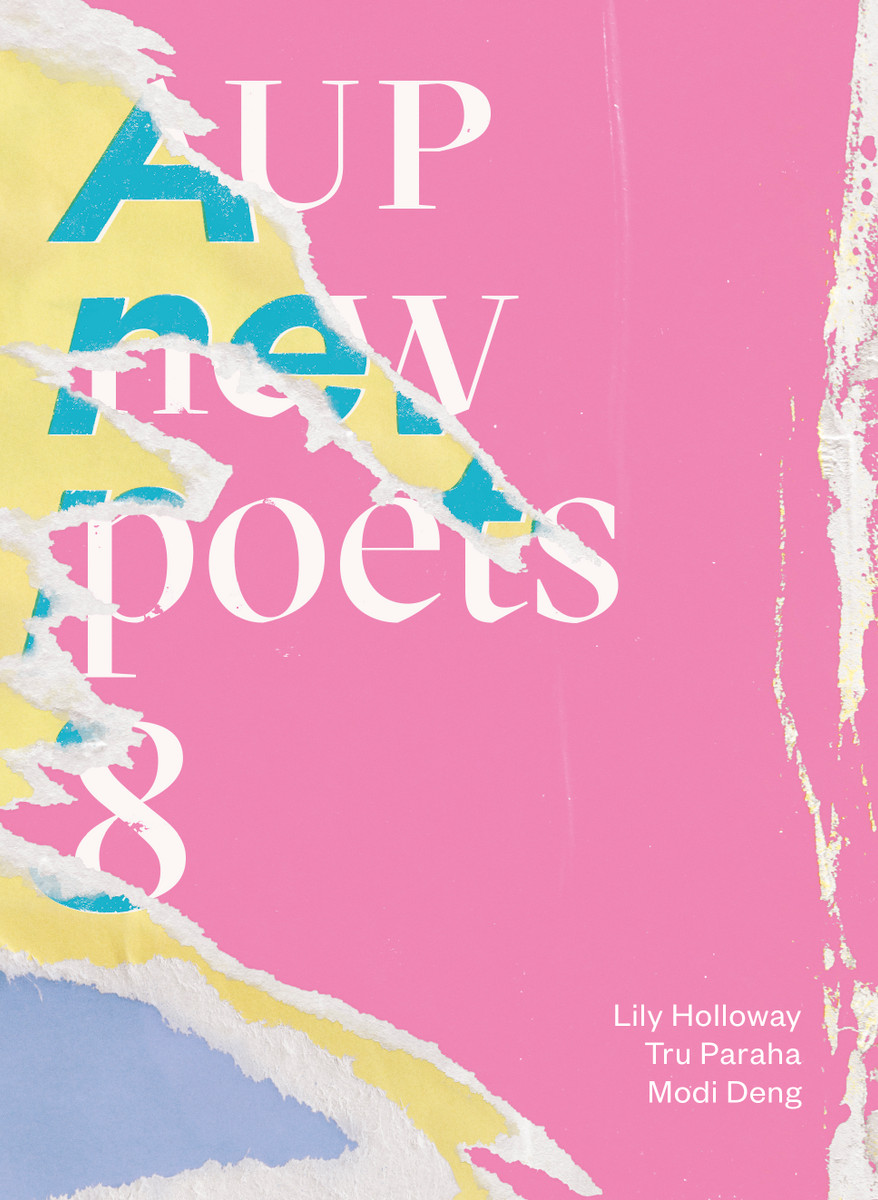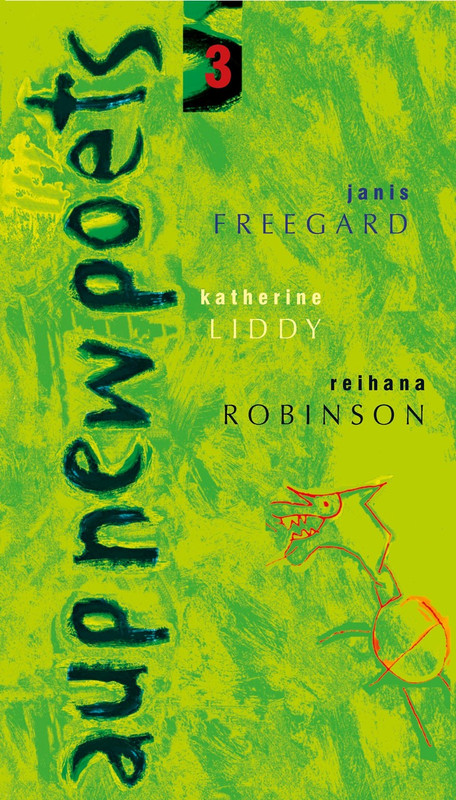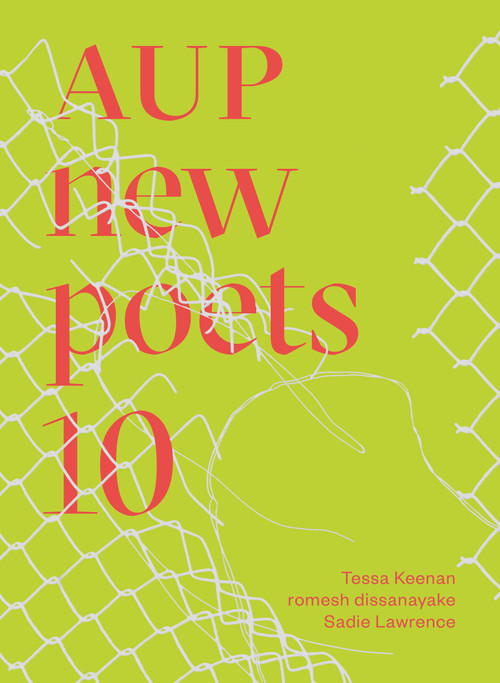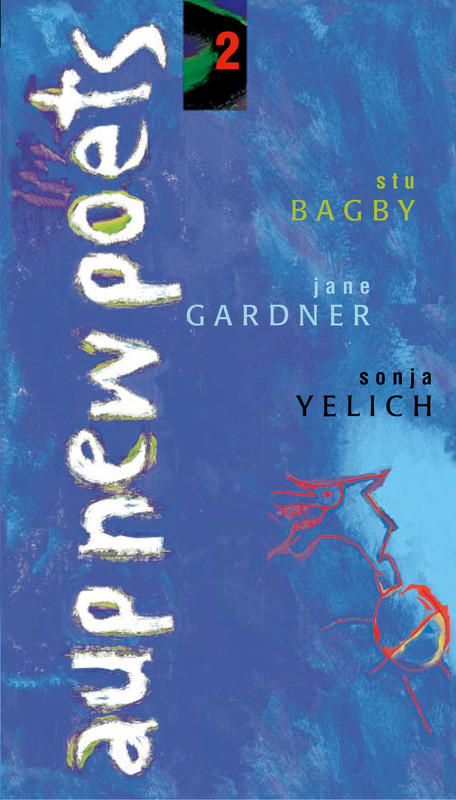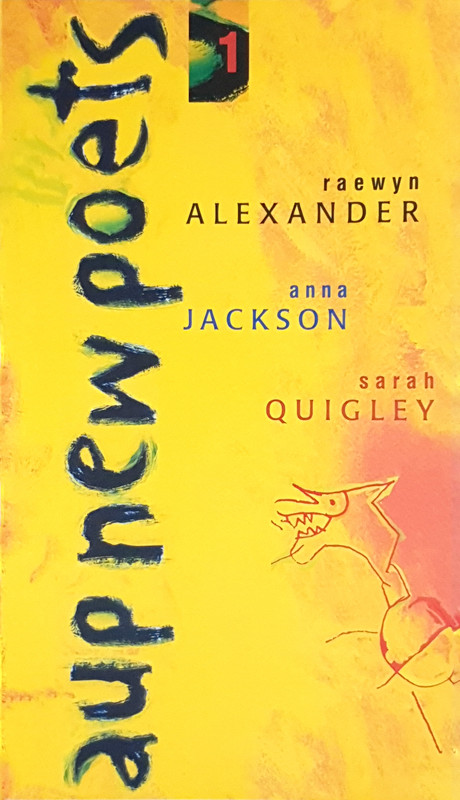
AUP New Poets 8
Lily Holloway, Tru Paraha and Modi Deng
Lilting bees and unidentifiable birds, long-division problems and continental cornflakes: three remarkable voices arrive in AUP New Poets 8.
In AUP New Poets 8, Lily Holloway, Tru Paraha and Modi Deng come together to produce a volume of remarkable inventions and intoxications.
Lily Holloway leads off with her collection ‘a child in that alcove’, using an inventive approach to form to lead the reader into the ordinary extraordinary events of daily life, her poetry filling them with dazzle and dread, questions and memories. Then Tru Paraha takes us inside ‘my darkling universe’ – a world ‘perpetually astral’ and ‘utterly spaghettified’, a poetic universe of unexpected letters and words and forms, where te reo Māori collides with atomic chemistry. Finally, Modi Deng travels through time and space into the lives of Brahms and backpackers, where uneasy conversations between mothers and children, between ‘the subjects and myself’, between Beijing and London, provide beauty and solace.
Three new voices, three compelling visions, all bound together in AUP New Poets 8.
Authors
Lily Holloway (born in 1998, she / they) is a queer writer and postgraduate English student. While she mostly writes poetry, she has also tried her hand at non-fiction, fiction and playwriting. You can find her work in places like Starling, Midway Journal, Scum, The Pantograph Punch and The Spinoff amongst various other literary nooks and crannies. In 2020 she was honoured to receive the Shimon Weinroth Prize in Poetry, the Kendrick Smithyman Scholarship in Poetry and second place in the Charles Brasch Young Writers’ Essay Competition. In her spare time she enjoys op-shopping, letter writing, visiting small towns and collecting vintage Teletubbies paraphernalia. She is passionate about survivor advocacy and taking up space. You can find a list of her writing at lilyholloway.co.nz.
Tru Paraha is of mixed descent with whakapapa ties to Ngāti Hineāmaru, Ngāti Kahu o Torongare, and Israel/Palestine. She has a PhD from The University of Auckland and is a lecturer in the English Department. Her interests and teaching specialty include transcultural writing, ecopoetry, and contemporary literature of Aotearoa. Tru’s poetry has appeared in numerous forms, including public readings, theatre, print, galleries, and online literary journals and magazines. Her recent collection, ‘in my darkling universe,’ appears in AUP New Poets 8.
Modi Deng is a pianist based in London, currently pursuing postgraduate performance studies on a scholarship at the Royal Academy of Music. Her Chinese name 默笛 means ‘silent flute’, which her father drew from a poem by Tagore. Performances with her ensemble, the Korimako Trio, have taken her throughout the UK and her concerts have been broadcast on BBC Radio 3 and RNZ Concert. After growing up in Dunedin, she went on to complete a Master of Music with First Class Honours on a Marsden research scholarship, while completing a Bachelor of English at the University of Auckland. Modi cares deeply about literature (diaspora and poetry), music, psychology and her family.
More about editor, Anna Jackson
Endorsement
‘The poets whose work is brought together in AUP New Poets 8 all write with an intoxicating sense of the world’s beauty, its depth and distances. All three poets are concerned with memory and its traces, with artistry and the forms it can take, with the natural world at its most infinitesimal and at its most vast.
I have loved travelling through the worlds evoked in these poems, some so familiar, some so remote, all so alluring.’
— from the foreword by Anna Jackson
Reviews
'Three poets, three distinctive voices sampling on a wide – perhaps endless - continuum of topoi and technique. After all, ‘There is no end to possible meanings’ (from Holloway’s Is any of this relevant? pp. 17-19). Tēnā koe mō tēnei raupapatanga.' — Vaughan Rapatahana for Flaxroots
'New Zealand has a fine literary tradition in the production of quality poetry; it looks like the future of that tradition is firmly secure.' — Chris Reed for NZ Booklovers

